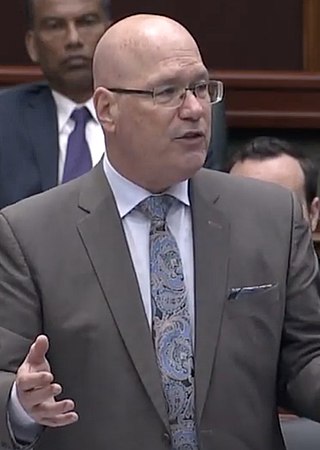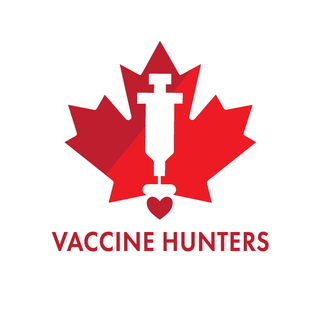Related Research Articles

In commerce, supply chain management (SCM) deals with a system of procurement, operations management, logistics and marketing channels so that the raw materials can be converted into a finished product and delivered to the end customer. A more narrow definition of the supply chain management is the "design, planning, execution, control, and monitoring of supply chain activities with the objective of creating net value, building a competitive infrastructure, leveraging worldwide logistics, synchronising supply with demand and measuring performance globally".This can include the movement and storage of raw materials, work-in-process inventory, finished goods, and end to end order fulfilment from the point of origin to the point of consumption. Interconnected, interrelated or interlinked networks, channels and node businesses combine in the provision of products and services required by end customers in a supply chain.
Procurement is the method of discovering and agreeing to terms and purchasing goods, services, or other works from an external source, often with the use of a tendering or competitive bidding process. The term may also refer to a contractual obligation to "procure", i.e. to "ensure" that something is done. When a government agency buys goods or services through this practice, it is referred to as government procurement or public procurement.
Henry Perrin Beatty is a Canadian corporate executive and former politician, who served as a Progressive Conservative of the House of Commons from 1972 to 1993, and as a cabinet minister from 1979 to 1980 and again from 1984 to 1993.
E-procurement is the business-to-business or business-to-consumer or business-to-government purchase and sale of supplies, work, and services through the Internet as well as other information and networking systems, such as electronic data interchange and enterprise resource planning.

The Council of Australian Governments (COAG) was the primary intergovernmental forum in Australia from 1992 to 2020. Comprising the federal government, the governments of the six states and two mainland territories and the Australian Local Government Association, it managed governmental relations within Australia's federal system within the scope of matters of national importance.

The United Nations Office for Project Services (UNOPS) is a United Nations agency dedicated to implementing infrastructure and procurement projects for the United Nations System, international financial institutions, governments and other partners around the world. The organization's global headquarters is located at the UN City campus in Copenhagen, Denmark. UNOPS is in charge of disbursing more than $3 billion worth of development projects and contracts for its partners every year. Its activities have ranged from managing the construction of schools in Afghanistan, to building shelters in Haiti, to procuring ambulances to support the Ebola response in Liberia. More recently, UNOPS was a key partner to more than 80 countries and territories in their response to the COVID-19 pandemic.
Government procurement or public procurement is undertaken by the public authorities of the European Union (EU) and its member states in order to award contracts for public works and for the purchase of goods and services in accordance with principles derived from the Treaties of the European Union. Such procurement represents 14% of EU GDP as of 2017, and has been the subject of increasing European regulation since the 1970s because of its importance to the European single market.
Sustainable procurement or green procurement is a process whereby organizations meet their needs for goods, services, works and utilities in a way that achieves value for money on a life-cycle basis while addressing equity principles for sustainable development, therefore benefiting societies and the environment across time and geographies. Procurement is often conducted via a tendering or competitive bidding process. The process is used to ensure the buyer receives goods, services or works for the best possible price, when aspects such as quality, quantity, time, and location are compared. Procurement is considered sustainable when organizations broadens this framework by meeting their needs for goods, services, works, and utilities in a way that achieves value for money and promotes positive outcomes not only for the organization itself but for the economy, environment, and society. This framework is also known as the triple bottom line, which is a business accounting framework. The concept of TBL is narrowly prescribed, and even John Elkington, who coined the term in the 1990s, now advocates its recall. Indeed, procurement practitioners have drawn attention to the fact that buying from smaller firms, locally, is an important aspect of sustainable procurement in the public sector. Ethics, culture, safety, diversity, inclusion, justice, human rights and the environment are additionally listed as important aspects of SPP.

Government procurement or public procurement is the procurement of goods, services and works on behalf of a public authority, such as a government agency. Amounting to 12 percent of global GDP in 2018, government procurement accounts for a substantial part of the global economy.

The Canadian Commercial Corporation is a Canadian federal Crown corporation mandated to support the growth of international trade by helping Canadian exporters gain access to foreign government procurement markets and by helping government buyers abroad to obtain goods from Canada. The ability to enter into commercial contracts as a Government of Canada entity through CCC is designed to give Canadian exporters the opportunity to mitigate risks associated with foreign procurement and international contracting. Canadian businesses exported $2.92 billion in products and services through CCC contracts during the CCC’s 2020-2021 fiscal year.

Stephen J. Clark is a politician in Ontario, Canada. He is the Minister of Municipal Affairs and Housing and a Progressive Conservative member of the Legislative Assembly of Ontario. He represents the riding of Leeds—Grenville—Thousand Islands and Rideau Lakes and has served as an MPP since 2010. Clark served as Opposition House Leader from 2014-2015; Co-Deputy Leader, Official Opposition with Sylvia Jones from 2015-2018; and Deputy Opposition House Leader from 2012-2014 and 2017-2018.

Anita Indira Anand is a Canadian lawyer and politician who has served as the minister of national defence since 2021. She has represented the riding of Oakville in the House of Commons since the 2019 federal election, sitting as a member of the Liberal Party. From 2019 to 2021, she served as minister of public services and procurement and oversaw Canada's procurement of vaccines and personal protective equipment during the COVID-19 pandemic. As minister of national defence, Anand has led Canada's efforts to provide military aid to Ukraine since the 2022 Russian invasion of Ukraine. She is the first Hindu to become a federal minister in Canada.

The COVID-19 pandemic in Metro Manila is part of the worldwide pandemic of coronavirus disease 2019 caused by severe acute respiratory syndrome coronavirus 2. The virus reached Metro Manila on January 30, 2020, when the first case of COVID-19 in the Philippines was confirmed in Manila. Metro Manila is the worst affected region in the Philippines, where most cases in the country are recorded. A state of calamity and community quarantine have been in place in the region since March 15.

During the COVID-19 pandemic in Canada, outbreaks of the virus took place in factories operated by the meat packing industry and the poultry processing industry. These outbreaks affected multiple plants, leading to closures of some factories and disruption of others, and posing a threat to the food supply in Canada.

The Government of Canada introduced multiple temporary social security and financial aid programs in response to the economic impacts of the COVID-19 pandemic in Canada. The initial CA$82-billion aid package was announced on March 18, 2020 by Justin Trudeau.

COVID-19 vaccination in Canada is an ongoing, intergovernmental effort coordinated between the bodies responsible in the Government of Canada to acquire and distribute vaccines to individual provincial and territorial governments who in turn administer authorized COVID-19 vaccines during the COVID-19 pandemic in Canada. Provinces have worked with local municipal governments, hospital systems, family doctors and independently owned pharmacies to aid in part, or in full with vaccination rollout. The vaccination effort in full is the largest such immunization effort in the nation's history. The vaccination effort began December 14, 2020, and is currently ongoing.

PTX-COVID19-B is a messenger RNA (mRNA)-based COVID-19 vaccine, a vaccine for the prevention of the COVID-19 disease caused by an infection of the SARS-CoV-2 coronavirus, created by Providence Therapeutics—a private Canadian drug company co-founded by Calgary, Alberta-based businessman Brad T. Sorenson and San Francisco–based Eric Marcusson in 2013. A team of eighteen working out of Sunnybrook Research Institute in Toronto, Ontario developed PTX-COVID19-B in less than four weeks, according to the Calgary Herald. Human trials with sixty volunteers began on January 26, 2021, in Toronto.
The COVID-19 vaccination program in Argentina is an ongoing effort of mass immunization. Vaccination against COVID-19 began in Argentina on 29 December 2020 aiming at health professionals. Argentina struck a deal with the United Kingdom in November 2020 for a British made vaccine produced by the pharmaceutical company AstraZeneca and the University of Oxford. The vaccines are part of a deal where Argentina received 22.4 million doses. During the first week, 39,599 doses were applied to health professionals.
At around £290 billion every year, public sector procurement accounts for around a third of all public expenditure in the UK. EU-based laws continue to apply to government procurement: procurement is governed by the Public Contracts Regulations 2015, Part 3 of the Small Business, Enterprise and Employment Act 2015, and the Public Contracts (Scotland) Regulations of 2015 and 2016. These regulations implement EU law, which applied in the UK prior to Brexit, and also contain rules known as the "Lord Young Rules" promoting access for small and medium enterprise (SMEs) to public sector contracts, based on Lord Young's Review Growing Your Business, published in 2013. In November 2016 an advisory panel of 24 entrepreneurs and business figures was formed to advise the government on purchasing goods and services from SMEs, and a campaign was launched to demonstrate that "government is open for business", with a target of increasing government spending with SMEs to 33% of all third-party public expenditure by 2020.

Vaccine Hunters Canada was a Canadian volunteer-run nonprofit organization with a mandate of "helping eligible Canadians find vaccines" during the COVID-19 pandemic in Canada. The group was involved in helping Canadians navigate various booking systems and their eligibility requirements, and providing residents with information such as appointment and vaccine availability at mass-vaccination sites, hospitals, pharmacies, family doctors and pop-up COVID-19 vaccine clinics involved in the Canadian rollout of COVID-19 vaccines. The group used its website, Twitter, Discord and its Facebook page to communicate information to the general population. In March 2022, exactly one year after its launch, Vaccine Hunters Canada announced that it would be closing its operations.
References
- 1 2 "Members of the COVID-19 Supply Council". Government of Canada, Public Services and Procurement Canada. 2020-05-03.
- ↑ "Ottawa establishes COVID-19 supply council as rapid testing efforts hit a snag". CBC. 3 May 2020.